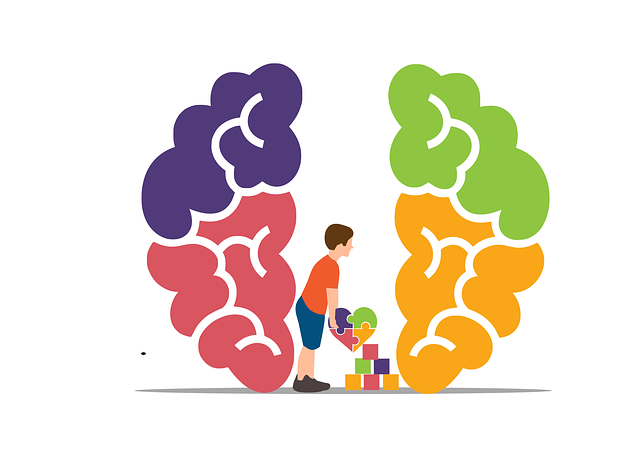Boulder Gambling Therapy leads impactful public awareness campaigns that combat gambling addiction by educating, empowering, and connecting vulnerable demographics with essential support. These initiatives leverage storytelling, targeted workshops, and engaging content to reduce stigma, promote healthy coping strategies, and foster a supportive environment for individuals seeking help. By understanding diverse target audiences and refining messaging based on qualitative data, Boulder Gambling Therapy ensures its campaigns remain relevant, effective, and aligned with the unique needs of those struggling with gambling addiction.
Public awareness campaigns play a pivotal role in promoting gambling therapy, reaching at-risk individuals where they are. This article delves into the art of crafting impactful initiatives centered around Boulder Gambling Therapy. We explore key aspects from understanding campaign dynamics to tailoring content for specific audiences. By identifying target groups’ unique needs and implementing strategic messaging, these campaigns can effectively combat problem gambling. Additionally, we emphasize the importance of measurement and iteration to enhance their overall impact.
- Understanding Public Awareness Campaigns for Gambling Therapy
- Identifying Target Audiences and Their Needs
- Creating Effective Content and Messaging Strategies
- Measuring Success and Iterating for Better Impact
Understanding Public Awareness Campaigns for Gambling Therapy

Public awareness campaigns play a pivotal role in shedding light on various social issues, and gambling addiction is no exception. In Boulder Gambling Therapy, these initiatives aim to educate the public about the risks and consequences of excessive gambling while promoting healthy coping mechanisms and seeking help when needed. Such campaigns often target specific demographics and communities to address unique challenges. For instance, they might focus on young adults to prevent early exposure to gambling, or they could provide support for families dealing with a loved one’s addiction, emphasizing empathy and understanding.
One of the powerful tools within these campaigns is storytelling. Sharing real-life experiences of individuals who have overcome gambling addiction can help reduce the stigma surrounding mental illness and encourage those struggling to reach out. Additionally, integrating social skills training and emotional intelligence workshops into these awareness programs can further empower individuals to make informed choices and build resilience against addictive behaviors. By combining education, empathy, and practical tools, Boulder Gambling Therapy campaigns strive to create a more supportive environment for those seeking help.
Identifying Target Audiences and Their Needs

When developing public awareness campaigns for sensitive issues like gambling therapy, identifying the target audience is paramount. Different demographics and groups may require tailored approaches to effectively engage and convey messages about Boulder Gambling Therapy or similar services. For instance, young adults might respond better to social media campaigns that utilize trendy formats and jargon-free language, while older individuals may prefer more traditional media outlets with clear, concise information.
Understanding the specific needs of these audiences is key. Some may be in crisis situations, requiring immediate access to Trauma Support Services, while others might benefit from educational resources or Empathy Building Strategies. A well-crafted Mental Wellness Podcast Series Production can cater to diverse preferences and needs, ensuring that those seeking help find relevant, accessible support. This precision in targeting ensures that campaigns resonate with audiences on a personal level, fostering a deeper connection with the message being conveyed.
Creating Effective Content and Messaging Strategies

Creating compelling content is pivotal to any public awareness campaign’s success, especially when addressing sensitive topics like gambling addiction. For the Boulder Gambling Therapy initiative, this means crafting messages that are both informative and engaging. Visuals play a significant role in capturing attention, so consider infographics or short videos showcasing real-life stories of recovery and the transformative power of therapy. These narratives can humanize the issue, reducing stigma and fostering empathy among the target audience.
The messaging strategy should also emphasize the positive impact of seeking help. Highlight successful outcomes and the tools provided by therapists, such as Conflict Resolution Techniques and Confidence Boosting strategies. Additionally, promote Self-Care Routine Development for Better Mental Health as a holistic approach to prevention and recovery. By balancing awareness with hope and practical solutions, campaigns can inspire individuals to take action and prioritize their well-being.
Measuring Success and Iterating for Better Impact

Evaluating the success of public awareness campaigns is a critical step in ensuring their effectiveness and long-term impact. When it comes to sensitive topics like gambling addiction, measuring success goes beyond mere reach metrics. It involves understanding behavioral changes, increased help-seeking, and improved attitudes towards issues like Boulder Gambling Therapy. By collecting qualitative data through surveys, focus groups, or feedback forms, campaign organizers can gain insights into the audience’s perception shifts, emotional responses, and readiness to seek support.
Iterating based on these findings is essential for refining approaches. Incorporating Compassion Cultivation Practices and Emotional Regulation techniques, for instance, might enhance campaigns’ ability to connect with audiences emotionally. Similarly, adapting Communication Strategies to tailor messages for different demographics or media platforms can significantly boost engagement. Regularly reviewing and updating campaign strategies in light of this data ensures that efforts remain relevant, impactful, and aligned with the needs of those they aim to reach.
Public awareness campaigns play a pivotal role in promoting Boulder Gambling Therapy, especially when tailored to specific audiences. By understanding the target demographics and their unique needs, we can craft compelling content and messaging strategies that resonate deeply. Measuring success through data-driven methods allows for continuous improvement, ensuring these campaigns have a lasting impact on raising awareness and encouraging individuals towards healthier gambling habits. This iterative approach is key to fostering positive change in the community.













